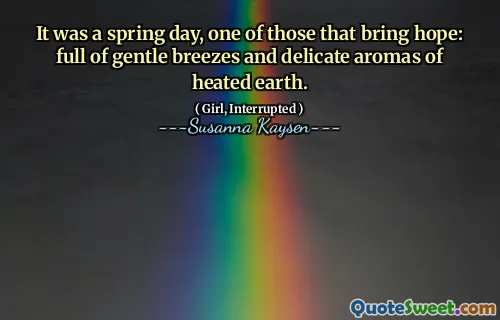Our winters are very long here, very long and very monotonous. But we don't complain about it downstairs, we're shielded against the winter. Oh, spring does come eventually, and summer, and they last for a while, but now, looking back, spring and summer seem too short, as if they were not much more than a couple of days, and even on those days, no matter how lovely the day, it still snows occasionally.
In the text, the speaker reflects on the protracted and uneventful winters experienced in their location, suggesting a sense of resilience in not voicing complaints about the harsh conditions. They describe how the winter atmosphere is somewhat mitigated for them, as they have some form of protection that keeps them safe and warm from the cold. This implies a degree of acceptance of their situation, highlighting how they endure the season without outwardly expressing discontent.
The speaker also considers the fleeting nature of spring and summer, reminiscing how these seasons, although welcomed, seem disappointingly brief in contrast to the long winters. Even during the beautiful days of spring and summer, the lingering presence of snow serves as a reminder that winter is never entirely absent. This creates a sense of yearning for a more extended respite from the monotony of winter, emphasizing the cyclical and sometimes harsh realities of life in a land dominated by long seasonal changes.



